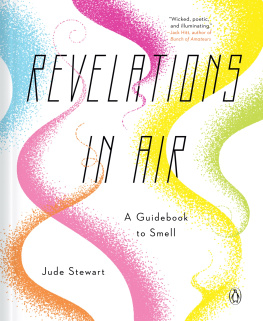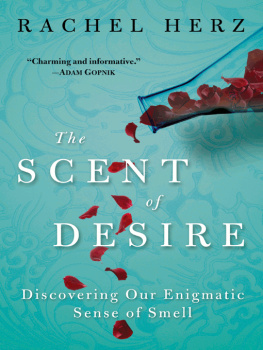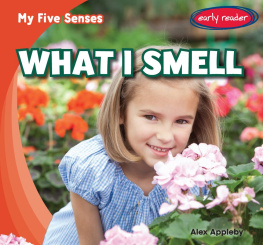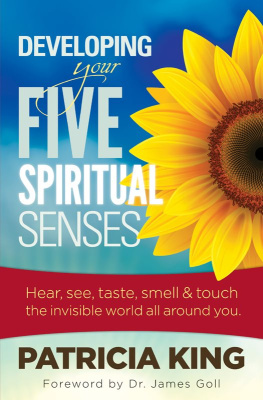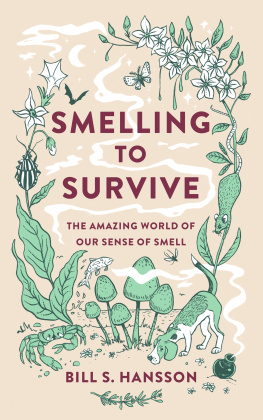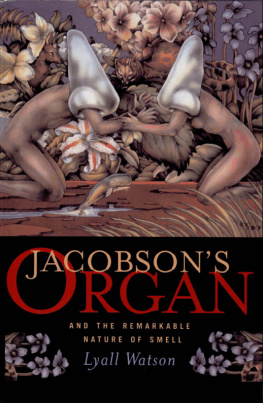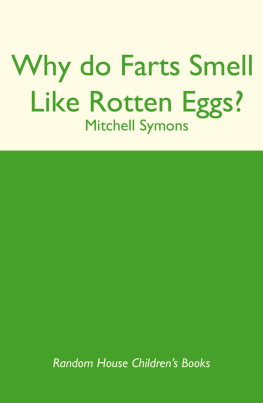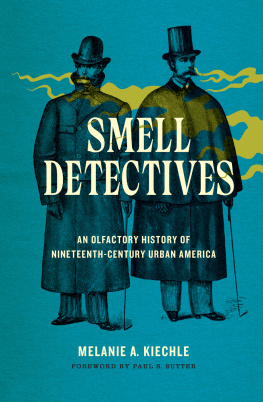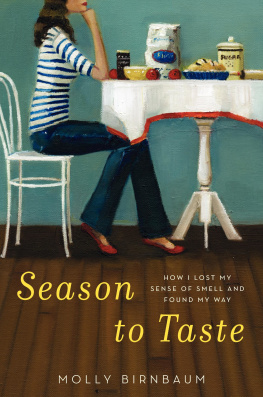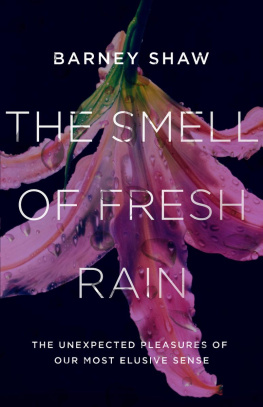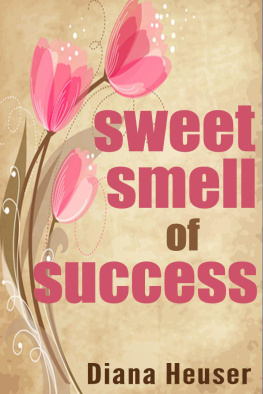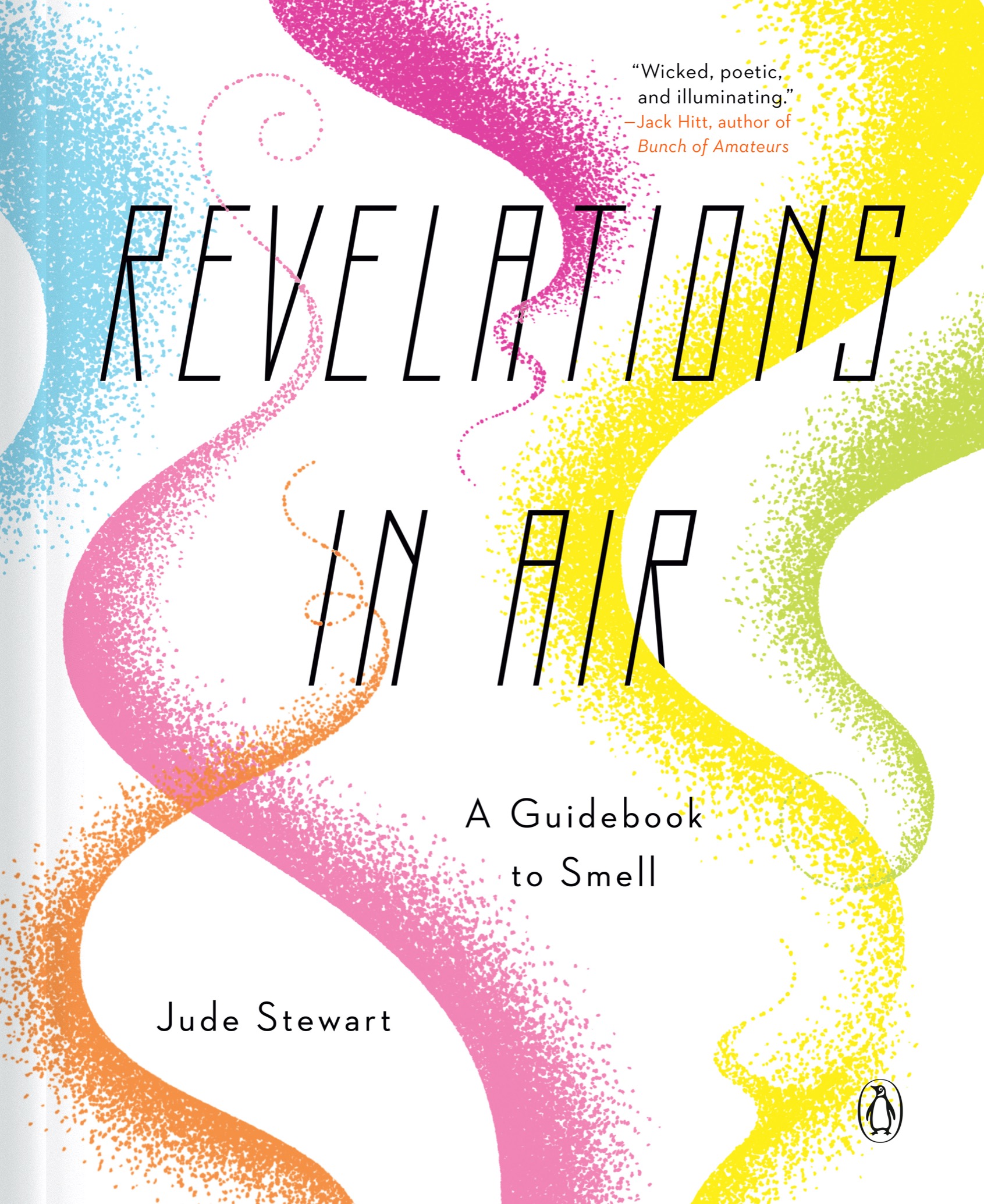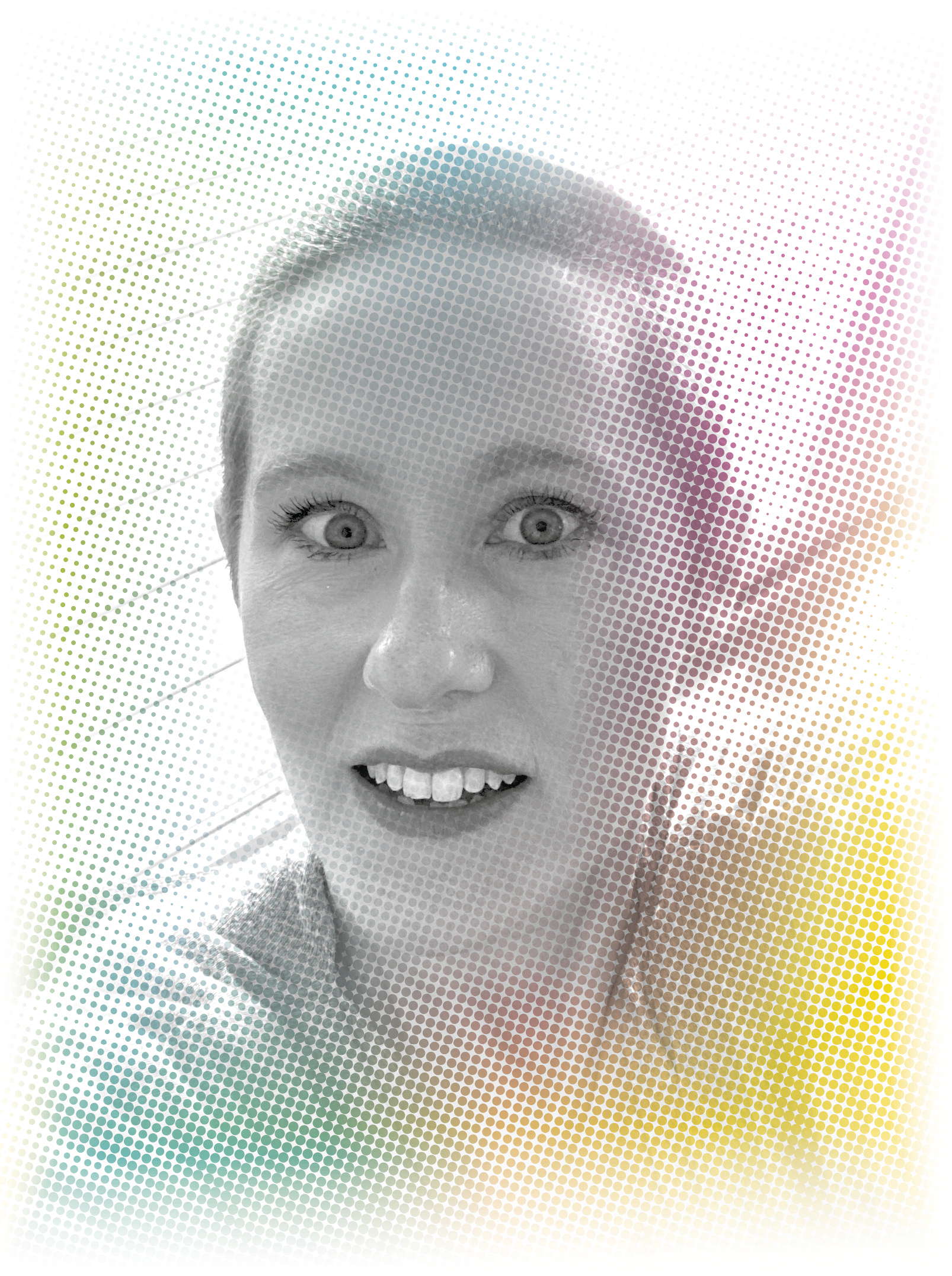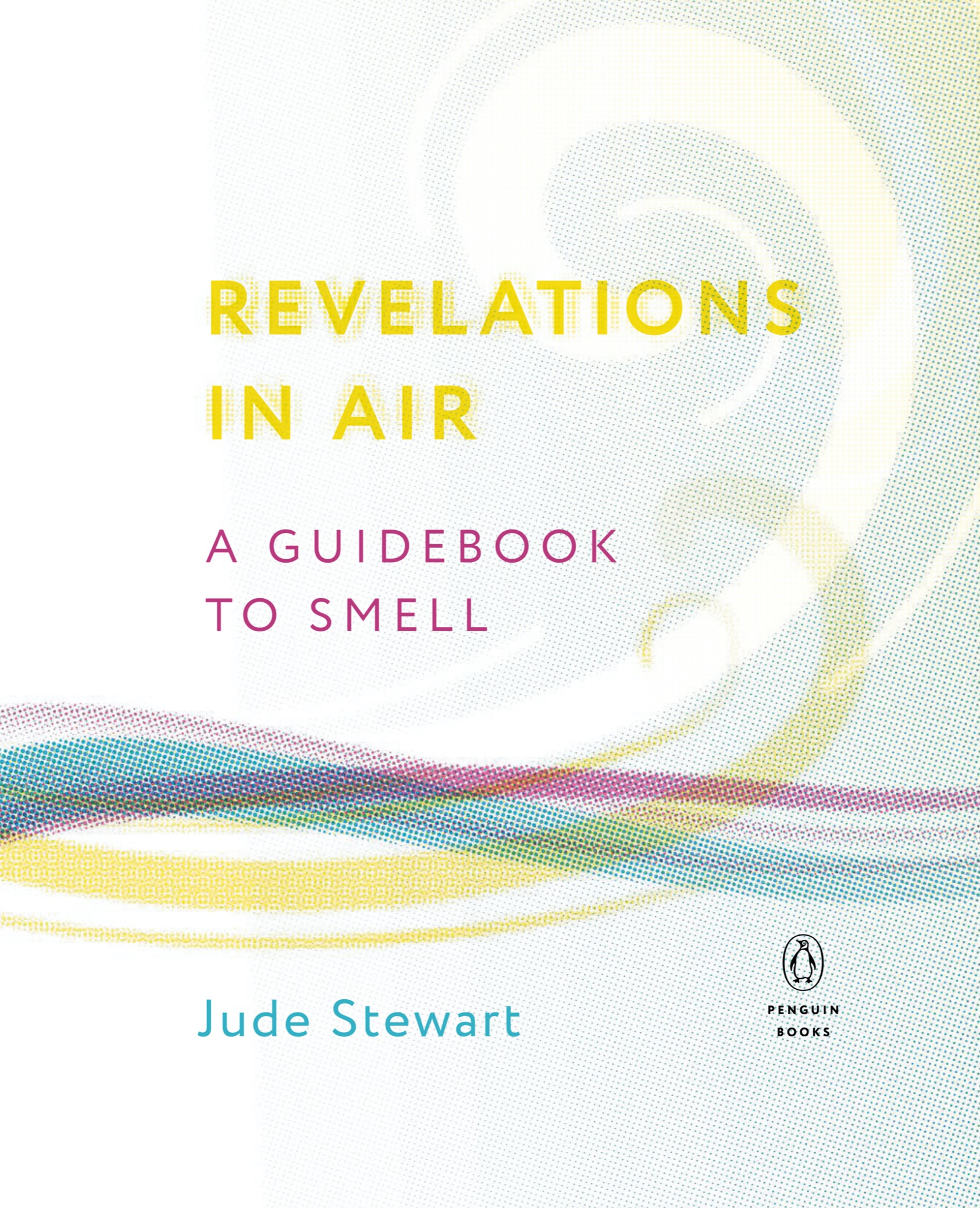PRAISE FOR REVELATIONS IN AIR
The nose on your face is the Buckingham Palace Guard of your body, the matre d of all taste, as well as the seducer of your imagination and memoryand Jude Stewart has charmed them all into a wicked, poetic, and illuminating tour of their mysterious domains.
Jack Hitt, author of Bunch of Amateurs
In Jude Stewarts witty, surprising, and jubilant romp through the most undervalued of the senses, you will encounter some of most rapturous descriptions of scent ever put on paper. But even more than that, Revelations in Air is an expansive and large-hearted consideration of friendship, memory, beauty, and the art of appreciation.
Adrienne Miller, author of In the Land of Men
PENGUIN BOOKS

Jude Stewart has written about design and culture for Slate, the Believer, The Atlantic, Fast Company, Design Observer and other publications. She is also a contributing editor at PRINT magazine. She is the author of ROY G. BIV and Patternalia. Stewart lives in Chicago.
PENGUIN BOOKS
An imprint of Penguin Random House LLC
penguinrandomhouse.com
Copyright 2021 by Jude Stewart
Penguin supports copyright. Copyright fuels creativity, encourages diverse voices, promotes free speech, and creates a vibrant culture. Thank you for buying an authorized edition of this book and for complying with copyright laws by not reproducing, scanning, or distributing any part of it in any form without permission. You are supporting writers and allowing Penguin to continue to publish books for every reader.
library of congress cataloging-in-publication data
Names: Stewart, Jude, author.
Title: Revelations in air : a guidebook to smell / Jude Stewart.
Description: New York : Penguin, [2021] | Includes bibliographical references.
Identifiers: LCCN 2021007902 (print) | LCCN 2021007903 (ebook) | ISBN 9780143135999 (hardcover) | ISBN 9780525507604 (ebook)
Subjects: LCSH: Smell. | SmellPhysiological aspects.
Classification: LCC QP458 .S74 2021 (print) | LCC QP458 (ebook) | DDC 612.8/6dc23
LC record available at https://lccn.loc.gov/2021007902
LC ebook record available at https://lccn.loc.gov/2021007903
Book design and illustrations by Daniel Lagin, adapted for ebook by Estelle Malmed
pid_prh_5.8.0_c0_r0
For Joy
One of the best little stinkers I know
CONTENTS
INTRODUCTION: WHY A BOOK ON SMELL?
My genius lies in my nostrils.
Ecce Homo by Friedrich Nietzsche
Smell is a tesseract, collapsing space and time. It unlocks memories and grants us access to scenes we can enter only in imagination.
Can you revisit your childhood? Not actually. But walk into your old elementary school, and youll be floored by how it smells exactly the same: dry chalk, wet wool, stale waft of cafeteria lunch. Sights and sounds will have changed beyond all reckoning, but smell is deep, transporting, and constant.
What does the inside of your body smell like? Surgeons say a healthy bodys interior smells of almost nothing, just humid pulsing. Its the surgeons knife that brings forth the smells. Blood emits a metallic tang; cutting through bone smells like burning hair.
What did World War I smell like? According to survivors, mustard gas smells of lilacs, garlic, horseradish, and onions. When the gas shell first hit, youd smell nothing. Only as the gas evaporated would fresh springtime smells waft upward, like thoughts sharpened to lucidity: Move! The sharp mustardy note would materialize last, as a final warning.
Outer space contains no air and therefore no smells. Yet space artifacts, returned to earth, smell eerily familiar. Lunar dust smells like spent gunpowder.
Other diseases announce themselves by changes in bodily smells. Typhus smells of freshly baked brown bread, tuberculosis of stale beer, yellow fever of the butchers shop, plague of over-ripe apples. Diagnosis by smell is both quaintly outmodedhow recognizable is measles today by its smell of freshly plucked feathers?and relevant again. Trained doctors and dogs, and increasingly electronic noses, can detect the smells of Parkinsons disease, melanomas, multiple sclerosis. All around us, the air scintillates with smells, with information about change.
We smell with our entire bodies, and what we detect influences our lives more than we realize. Olfactory receptors line our noses but also our skin, skeletal muscles, and major organs. When exposed to a sandalwood odor, skin abrasions heal faster and hair regrows.
Because smell is only detectable at close range, its intimate. Even when you think youre smelling something far awaylike exploded fireworks or New York City hot dog cartsyoure not bionically smelling across great distances. Youre smelling a dense carpet-bomb of smell thats dispersed enough to reach your nose. And your worst fear about awful smells is true. The smellthat is, tiny airborne molecules from the smelly substancereally does invade your bodys interior and bind to your olfactory receptors deep inside the nose. Smells intimacy isnt a problem when youre sniffing something pleasant. But smell is largely involuntary: if youre breathing, youre smelling. Pungent smells can signal an unnerving proximity to food, to sex, to garbage, to poopingto all the awkward, vital things.
That awkwardness is powerful. Smell is judgy by design; it patrols our bodys boundaries for incoming threats. Smell infiltrates our oldest, reptilian-brain structures first, mashing all the buttons on the limbic dashboard: emotions, memories, opinions. But theres a built-in delay between smelling and thinking. Reason and wordsthe neocortexs businessattach last to smells and matter the least.
Smells hasty judgments can be disastrous. Consider the medieval concept of foeter Judaicus, the supposed stench of Jews later appropriated by the Nazis.
On the flip side, smelling can also bring people closer. In many cultures, choosing to smell a stranger signals a beautiful, mute friendliness. Many Arab cultures greet each other via nose kisses: you press the bridge of your nose against the other persons, then inhale each others scent. Because it requires vulnerability, smell engenders trust.
Smell is intelligent, too. The number of unique smells humans can distinguish may go as high as one trillion. We arent the best all-around smellers in the animal kingdom, but we are the best discriminators between smellsthanks to our brains, huge portions of which are wired for smell. Why devote so much brainpower to smell? Hard to say, but smell-psychologist Rachel Herz offers an intriguing theory: The ability to experience and express emotion grew directly out of our brains ability to process smell. Herz means this literallythe human brains amygdala slowly evolved out of the primitive olfactory cortex which controls smelling. But shes also referring to evolution of a metaphorical sort: Emotions are to us what scents are to our animal cousins, she writes in her book

